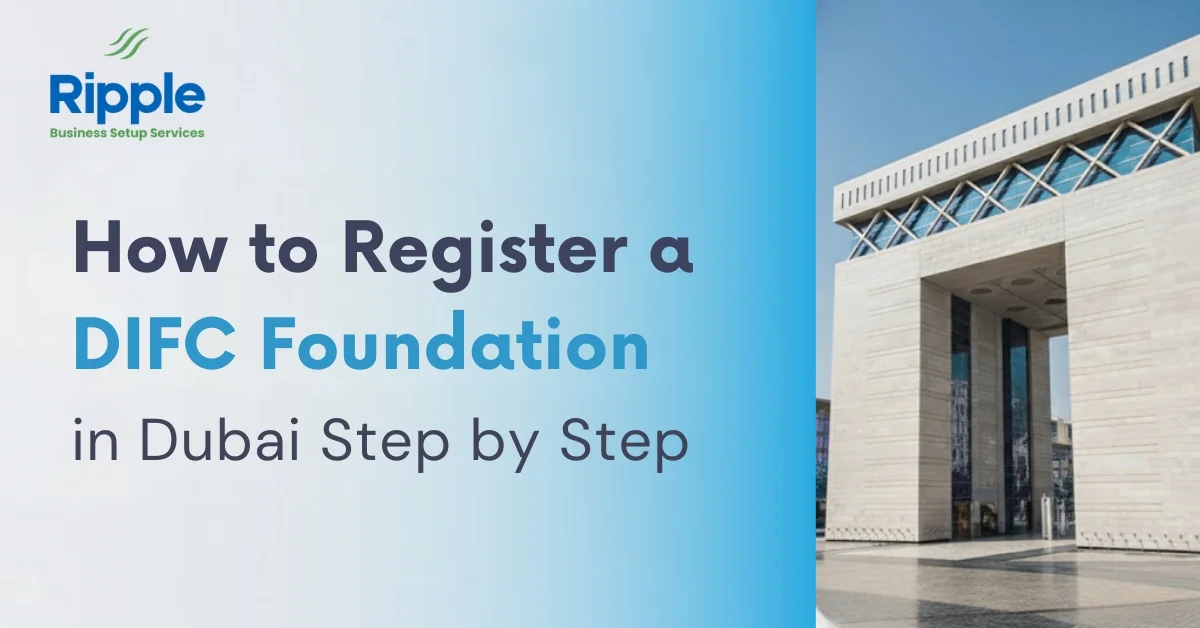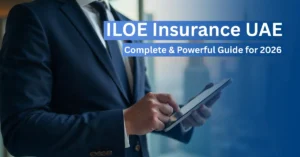Introduction
A DIFC Foundation is one of the most flexible legal structures available in Dubai for wealth protection, succession planning, and charitable purposes. Established under the Dubai International Financial Centre (DIFC), it allows individuals, families, and businesses to safeguard assets while maintaining governance and control.
In today’s fast-changing financial world, families and global investors prefer foundations over traditional structures for their ability to provide continuity, transparency, and asset protection. For businesses, a foundation ensures smooth succession, while for charities, it helps secure long-term funding and management.
What Is a DIFC Foundation?
A DIFC Foundation is a separate legal entity created under DIFC Foundation Law No. 3 of 2018. Unlike a company, it does not issue shares or have shareholders. Instead, it is structured around a charter and articles, which define its objectives, governance, and management rules.
1. DIFC Foundation vs Company
- Company: Owned by shareholders, profit-driven, and registered for commercial purposes.
- Foundation: Has no owners and is created for asset protection, wealth planning, family succession, or charitable causes.
The foundation is recognized as an independent legal entity that can hold assets, enter into contracts, and manage funds in line with its objectives. This makes it a trusted tool for international investors seeking stability in Dubai.
Key Benefits of a DIFC Foundation
1. Asset Protection and Succession Planning
One of the strongest DIFC Foundation benefits is asset protection. Assets placed under a foundation are safeguarded against external claims, disputes, or mismanagement. Families use this structure for succession planning, ensuring wealth transfers smoothly across generations.
2. Benefits for Families and Businesses
The DIFC Foundation offers flexibility for both private and corporate purposes. Families can secure real estate, investments, and other assets. Businesses often use foundations to manage intellectual property or group holdings.
3. Attracting Global Investors
Dubai’s reputation as a financial hub, combined with DIFC’s robust regulatory framework, makes the DIFC Foundation setup highly attractive for international investors. With zero income tax in DIFC and recognition under international standards, investors find it a secure and efficient structure.
4. Charitable and Non-Profit Uses
A DIFC Foundation for charities is also popular. Organizations and philanthropists can use foundations to manage donations, endowments, and long-term charitable projects with transparency and compliance.
DIFC Foundation Requirements
Before starting the registration, founders must meet certain DIFC Foundation requirements.
- Who can set up a foundation: Both individuals and corporate entities can establish a DIFC Foundation. Founders may be residents or non-residents of the UAE.
- Mandatory documents:
- DIFC Foundation Charter (outlining purpose and governance).
- Articles of Association (management and operational rules).
- Passport copies and corporate documents (if applicable).
- Eligibility: The foundation must have a clear purpose, whether private wealth management, family succession, or charitable activity.
- DIFC Foundation fees: Registration fees typically range between USD 200–1,000, depending on the application type, plus annual renewal charges.
Meeting these requirements ensures a smooth setup process under DIFC Foundation regulations.
Step-by-Step DIFC Foundation Setup Process
Step 1: Choose the Purpose and Structure
The first step in DIFC Foundation setup is deciding its purpose. Founders can establish:
- A private wealth foundation for asset protection.
- A family foundation for succession planning.
- A corporate foundation for holding business assets or IP rights.
- A charitable foundation for philanthropic activities.
At this stage, it is also important to outline the DIFC Foundation governance model, defining how decisions will be made and who will manage the assets.
Step 2: Prepare the DIFC Foundation Charter and Articles
The DIFC Foundation Charter is the most important document, as it defines the foundation’s purpose, governance, and rules. The Articles of Association further explain how the foundation will operate, including decision-making processes, roles, and powers of council members.
Both documents must comply with DIFC Foundation regulations and be submitted to the DIFC Registrar. Professional legal drafting is often recommended to avoid future conflicts.
Step 3: Appoint Roles and Officers
A foundation cannot function without defined roles under the DIFC Foundation Law. Key positions include:
- Founder: The person or entity that establishes the foundation.
- Council Members: Similar to directors in a company, they are responsible for managing day-to-day affairs.
- Guardian: Ensures the foundation’s objectives are followed, especially in charitable cases.
These roles guarantee accountability and proper management of foundation assets.
Step 4: Submit DIFC Foundation Applications
Once documents are ready, the founder submits an official DIFC Foundation application to the DIFC Registrar. Required documents include the charter, articles, and identification papers.
The Registrar reviews the submission and records the foundation in the DIFC public register. This ensures transparency and legal recognition.
Step 5: Pay DIFC Foundation Fees and Get Approval
Founders must pay the DIFC Foundation fees during submission. After payment, the registrar issues an approval certificate. The registration timeline is usually short, often within a few working days, making it one of the fastest foundation setups in the region.
DIFC Foundation Governance and Compliance
Once registered, ongoing compliance is critical. A DIFC Foundation must:
- Keep proper records and financial statements.
- Conduct audits where necessary.
- Ensure council members and guardians fulfill their duties.
- Manage DIFC Foundation funding transparently, whether from private assets, corporate income, or donations.
Strong governance protects the foundation’s reputation and ensures long-term sustainability.
DIFC Foundation vs Trust
When choosing between a DIFC Foundation vs trust, it is important to understand the key differences.
- Ownership: A trust relies on a trustee holding assets on behalf of beneficiaries, while a DIFC Foundation is an independent legal entity that directly owns its assets.
- Control: In a trust, the trustee has significant powers, whereas in a foundation, the founder and council members can maintain greater control through the charter and governance rules.
- Transparency: A DIFC Foundation is recorded in the DIFC public register, ensuring legal recognition, while trusts are usually more private in nature.
- Flexibility: Foundations are better for long-term wealth planning, charitable work, and corporate holdings, while trusts are often used for simpler inheritance arrangements.
1. When to Choose a Foundation Instead of a Trust
Choose a DIFC Foundation setup if you want:
- Stronger asset protection under UAE law.
- A structure with clear governance and accountability.
- More flexibility for both family and business applications.
2. Comparison with ADGM Foundation
Both DIFC Foundation and ADGM Foundation are popular in the UAE. The main difference lies in jurisdiction:
- DIFC operates in Dubai and is recognized globally for its common law system.
- ADGM Foundation operates in Abu Dhabi and has similar benefits, but is often chosen for Abu Dhabi–based structures.
Common Applications of a DIFC Foundation
A DIFC Foundation can be used for multiple purposes:
1. Wealth Management and Asset Protection
High-net-worth individuals often place real estate, investments, and other assets under a foundation for maximum security. Assets remain protected from disputes, creditors, or family disagreements.
2. Family Succession Planning
Families use foundations to ensure smooth succession. By setting clear rules in the DIFC Foundation Charter, wealth passes seamlessly from one generation to the next.
3. Charitable Purposes
A DIFC Foundation for charities is ideal for philanthropists who want to manage endowments or donations. It provides legal recognition and transparency for long-term charitable projects.
4. Holding and Managing Investments
Corporations and family businesses also use foundations to hold intellectual property, group shares, and investments. This helps centralize control and ensure stability.
DIFC Foundation Regulations and Legal Framework
1. Overview of DIFC Foundation Law
The framework for foundations comes from DIFC Foundation Law No. 3 of 2018. It provides clarity on formation, governance, and compliance.
2. Role of DIFC Authority in Monitoring
The DIFC Registrar maintains the DIFC public register and ensures that all registered foundations follow legal and financial standards.
3. Compliance with UAE and International Standards
Foundations must comply with DIFC Foundation regulations and global financial reporting norms. This builds trust with international investors and ensures that the structure remains transparent.
FAQ
1. What is the purpose of a DIFC Foundation?
A DIFC Foundation is used for asset protection, succession planning, wealth management, and charitable activities.
2. What are the main DIFC Foundation requirements?
Founders need to prepare a DIFC Foundation Charter, appoint council members, submit applications to the Registrar, and pay registration fees.
3. How much are the DIFC Foundation fees?
Registration fees usually range between USD 200 –1,000, with additional annual renewal charges.
4. Can a DIFC Foundation be used for charities?
Yes, a foundation can manage donations, endowments, and long-term charitable projects with full legal recognition.
5. What is the difference between DIFC Foundation and ADGM Foundation?
Both offer asset protection and succession planning. DIFC operates in Dubai, while ADGM is based in Abu Dhabi. The choice depends on the preferred jurisdiction and specific objectives.
Conclusion
Registering a DIFC Foundation in Dubai is a straightforward process when the steps are followed carefully. From preparing the Foundation Charter to paying registration fees and securing approval, the setup can often be completed within a few days.
A foundation offers unmatched benefits for asset protection, family succession planning, wealth management, and charitable purposes. Its independent legal structure and strong governance make it a trusted choice for both individuals and businesses.
For those looking to secure their legacy or protect assets under a globally recognized legal system, the DIFC Foundation setup is one of the best options available in the UAE.
Contact Ripple Business Setup to learn more
Disclaimer: This article is for informational purposes only and does not constitute legal or financial advice. Professional consultation is recommended.






